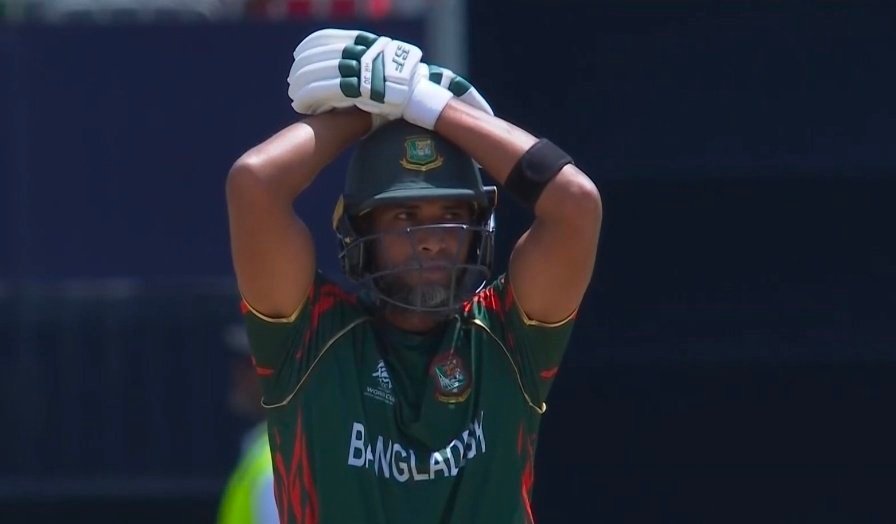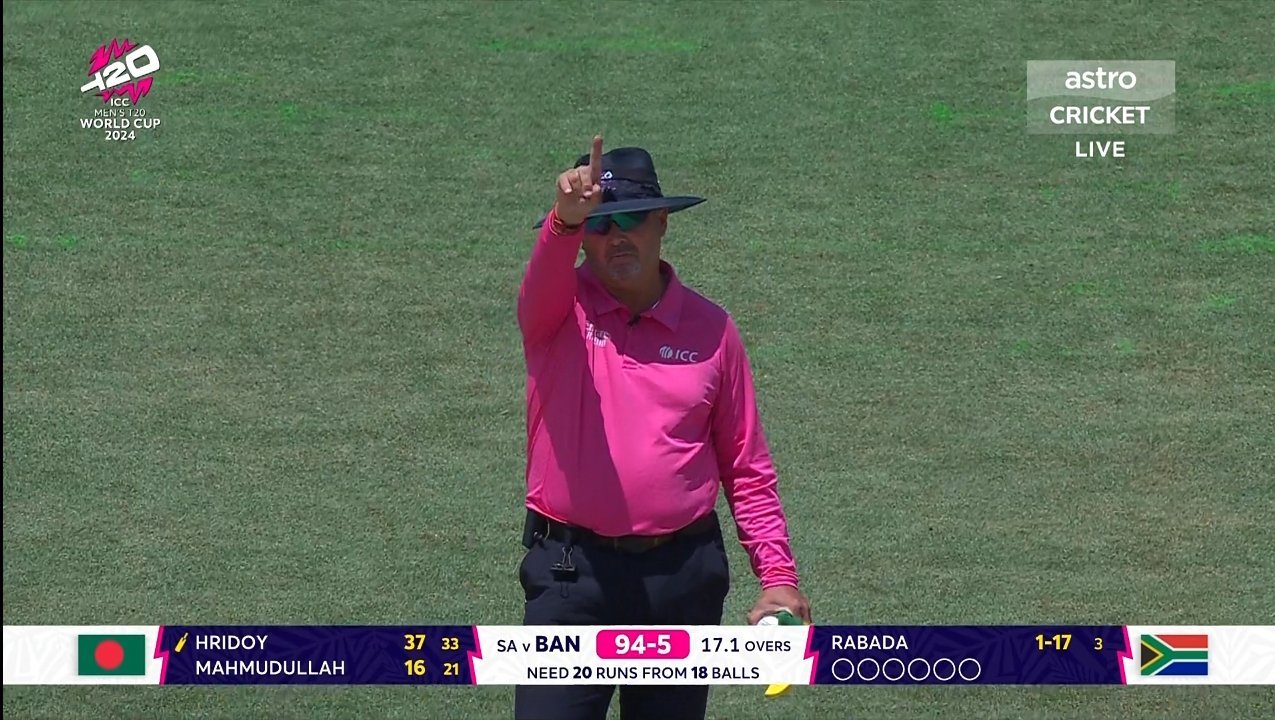- T20 World Cup 2024: In the match played between South Africa and Bangladesh in the T20 World Cup 2024, a rule was seen which shocked everyone. This rule became the reason for Bangladesh’s defeat.
Table of Contents

T20 World Cup SA vs BAN ICC Rule:
In the 21st match of T20 World Cup 2024, a rule of the International Cricket Council (ICC) became a problem for Bangladesh. Due to this rule of ICC, Bangladesh had to lose the match against South Africa. This rule can prove to be very fatal for the rest of the teams in the tournament as well. Under this rule, the umpire did not give a four to the Bangladesh team. So what is the rule, which became the reason for Bangladesh’s defeat? Let’s understand.
Bangladesh lost the match against South Africa by 04 runs and the umpire did not give Bangladesh a boundary in the match, which could have proved to be the winning run of the match. This boundary could have given Bangladesh its second consecutive win in the tournament, but it could not happen.
Actually during the second innings when Bangladesh was chasing the target, the team was not given four runs of leg bye on the second ball of the 17th over.
What happened was that South African fast bowler Otniel Bartman bowled the ball to Bangladesh batsman Mahmudullah, which hit his pad and went backwards and crossed the boundary line. In principle, it should have been given a four of leg bye. But, before the ball reached the boundary line, an LBW appeal was made from South Africa.
On Africa’s appeal, the field umpire declared Mahmudullah out. But Mahmudullah immediately took a review and then the third umpire declared him not out. According to this, you must be thinking that after being declared not out, Bangladesh should get a leg bye boundary.
But this did not happen due to the rule. According to the rule, if the umpire raises his finger for out, then the boundary hit on the ball or any run taken will not be added. After the umpire gives out, the ball becomes dead.
Man of the match award goes to this umpire 🫡#SAvsBAN pic.twitter.com/yqGZh992XJ
— Expose Cricket (@Perfect_Yorker) June 10, 2024
This rule can ruin any team
This is a rule that can ruin any team in a moment. Suppose the final match of the World Cup is going on and the team needs only 1 or 2 runs on the last ball and the ball hits the batsman’s pad and he runs and takes two runs, but the fielding team appeals at the same time and the field umpire gives him out.
But, in reality the player is not out and after taking a review he is saved. But that review will be of no use because according to the rule those 1 or 2 runs taken by the batsman while running will not be added and the other team will win.
In the recent match between South Africa and Bangladesh, an intense debate has emerged surrounding a critical moment that potentially altered the course of the game. As the match came down to the wire, an incident involving a boundary decision has sparked accusations of dishonesty against the Bangladesh cricket team.
During the match, there was a pivotal moment where a boundary was not awarded despite the ball seemingly crossing the rope. This decision, or lack thereof, proved to be costly for Bangladesh as they ultimately lost the match by a margin of just 4 runs.
In the aftermath of the match, questions have arisen regarding the integrity of the decision-making process. Many fans and analysts have raised concerns over whether Bangladesh was unfairly disadvantaged by a lapse in judgment or, worse yet, deliberate dishonesty.
The role of the umpire in this scenario has also come under scrutiny. Umpires are tasked with making split-second decisions under immense pressure, and while they are human and prone to errors, the consequences of such mistakes can be significant, as evidenced by this match.
Some argue that the failure to award the boundary was a genuine mistake, while others believe it may have been influenced by external factors. The stakes in international cricket are undeniably high, and the temptation to gain any possible advantage, even through questionable means, can be strong.
However, it’s important to approach these allegations with caution and allow for a thorough investigation to take place before jumping to conclusions. Accusations of dishonesty can have far-reaching consequences, not just for the players and teams involved, but for the integrity of the sport as a whole.
Moving forward, it’s imperative that measures are put in place to ensure transparency and fairness in cricket officiating. Whether through increased technology usage, enhanced training for umpires, or stricter penalties for misconduct, steps must be taken to safeguard the integrity of the game and prevent similar controversies from arising in the future.
In the meantime, the cricketing world awaits further developments in this ongoing saga, hoping for clarity and resolution to restore faith in the spirit of fair play that lies at the heart of the sport.
Mahmudullah was wrongly given out LBW, the ball went for four leg byes. The decision was reversed on DRS. Bangladesh didn't get the 4 runs as ball is dead once batter given out, even if wrongly. And SA ended up winning the game by 4 runs. Feel for Bangladesh fans. #SAvBAN #T20WC
— Wasim Jaffer (@WasimJaffer14) June 10, 2024

